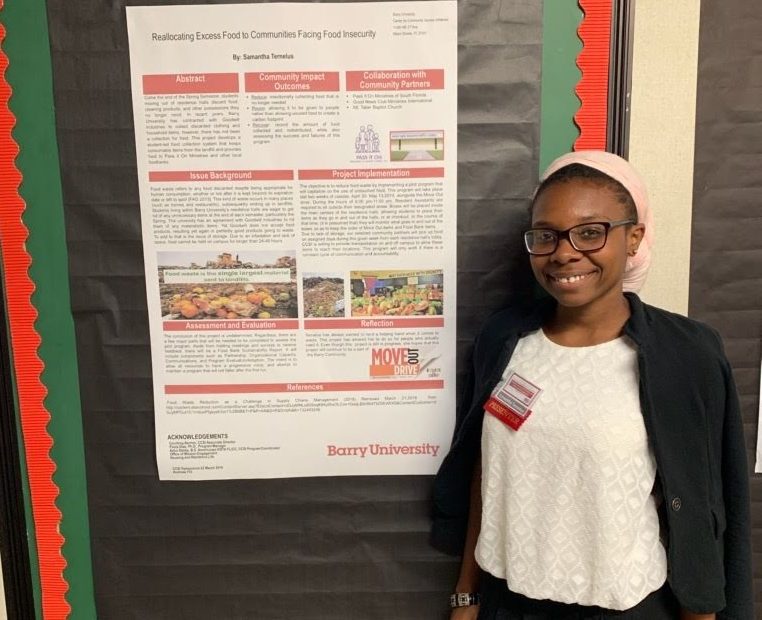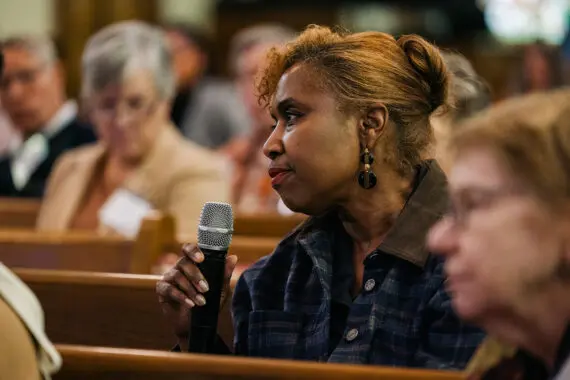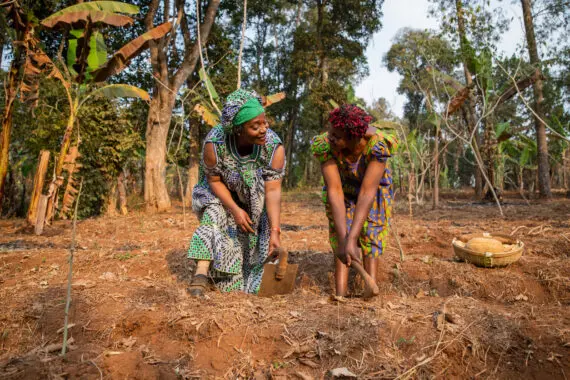Meet Samantha Ternelus, a recent graduate from Barry University in Miami Shores, Florida and a Bread for the World advocate.
Samantha is a first-generation college graduate; she is Haitian American and first became involved with Bread for the World in 2018.
“I participated in the racial wealth gap simulation and was blown away by what I learned,” Samantha said. She signed up to participate in Bread for the World’s advocacy trainings to learn how to become a stronger advocate for people living in hunger and poverty. Her most memorable experience was traveling to Washington, D.C. last year to participate in Bread’s Advocacy Summit. “I was able to have my voice heard,” Samantha said. “The summit allowed me to connect with other students in Florida and learn about the work that other college campuses were involved in.”
Samantha completed her advocacy training last year and was recognized for starting a college-wide food collection drive. “College students waste a lot of food. I decided that we could collect certain foods and canned goods and donate them to our local food bank. Bread for the World has inspired me to take action – and that’s exactly what I did.”
Samantha is looking for more opportunities to help people living in hunger and poverty. She currently volunteers at the local food bank in Fort Lauderdale.



